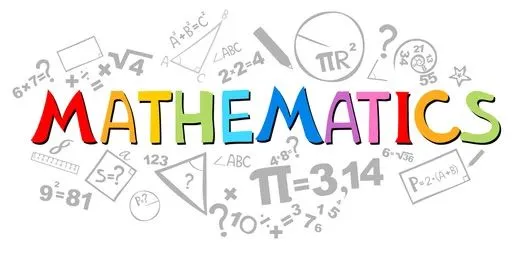Important Math Skills for 4th Grade that Will Help Your Child in the Future
When kids get to the 4th grade, they should use their math 3 grade skills which are now required for solving more advanced problems because of a change in level. They also have to learn new skills, which will only get more complex as kids move up the academic ladder.
As a parent who wants to help their kid(s) get better at math, you need to get familiar with the math concepts/skills they will be learning in school so that you can offer effective math help for 4th graders.
Here are some of the math skills your child will learn in 4th grade:
Multiplication of Large Numbers:
Kids learn about multiplication in earlier grades; however, the numbers they have to multiply increase as they progress. Kids will learn in 4th grade how to multiply four-digit numbers by single-digit numbers and two-digit numbers.
By the time kids get to this point, they will need to use their addition skills because the knowledge of the timetable will no longer be sufficient. An online math tutor can help kids get better at multiplication of large numbers.
Division with Remainders:
In 4th grade, your child will learn how to divide numbers, and will often have remainders as a result. This concept is new, and kids have to divide up to four digits by two digits or a single-digit number. For example, 4/2=2; however, when you try 5/2, you get 2 remainder 1.
You can teach your child to approach this concept differently using all the knowledge they gathered in the previous grades, including repeated subtraction and place values. There are multiple ways to solve math problems; so, teach your child to try out different ways until they find the easiest and fastest one.
More Complex Forms of Fractions:
Kids first learn about fractions in grade 3, and when they get to grade 4, they begin to experiment with more complex forms of this math concept. Kids will not only multiply fractions in 4th grade but also divide them and compare fractions using numerators and denominators.
Your kids will also encounter the idea of whole numbers as a multiplication factor for fractions, which will result in getting mixed numbers as answers, a relatively new concept they will encounter again in 5th grade. There are so many ways you can help a kid get better with this skill, like cooking or doing laundry.
You can explain why you need ¼ cup of liquid soap when washing two clothing items instead of ½ when washing four. 4th graders will also understand the idea of whole numbers and fractions in their sameness. For example, at the end of the lessons, your kid should be able to tell that four is the same as 8/2, and vice versa. This part of the concept is easier to understand with fractions containing even numbers.
Word Problems:
Word problems in math are representations of real-life issues infused with mathematical calculations. The idea behind this concept is to prepare your child for handling math problems as real-life situations. In 4th grade, your child will learn to work through word problems using common core math principles as they try to make sense of the questions while trying to find the solutions.
Signing your kids up for online math help on one of the numerous math platforms available on the internet can make them master this math skill before you know it. The good thing about getting this skill is that you can now practice real-world math scenarios because children are already familiar with numerous word problems they have learnt in class. You can offer kids multiple steps to solve the problems and leave them to choose the one that works best for them.
Comparison of Decimals:
The curriculum will introduce your kids to decimals for the first time in the 4th grade. They will learn how decimals look like, how they factor into the math universe, and how to work with them. 4th graders will also learn how to compare decimals and how to round decimals to tenths and hundredths. To compare decimals and get the correct answers, kids must first know how many tenths or hundredths there are in each decimal figure.
Measuring Weights and Volumes:
Kids learn the 'greater-than-lesser-than' concept in grade 1, and in math 2 grade, they can recognize what item is bigger just by looking at it. However, in 4th grade, they need to learn how to measure weights and volumes to get a more accurate value.
More calculations are involved here, and you may need an online tutor to help you and your child. However, you can also step in here as the parent and teach your child about measurements using small pails of water or other safe items you have at home.
Charts and Graphs:
Charts and graphs are essential math concepts your child will encounter as long as they have to deal with math-related career choices as they grow. The curriculum will introduce this skill in 4th grade, and kids will learn how to plot graphs and draw charts, however messily. You can use clay and other items for building charts to make kids more interested in/attracted to charts. Plotting graphs can be challenging, and if you sign your kids up for online math classes to reading for 4 class, they can better understand this math topic.
Conclusion:
In 4th grade, kids are reviewing the topics they learned in 3rd grade and learning some new skills that will be used in the 5th grade. Learning complicated math concepts in such a short time can get overwhelming, which is why students often need extra help from their parents. However, parents can only offer support from a place of knowledge, which is why you should read more on the skills above or at least get basic knowledge on them so that you can give directives to a kid’s online tutor.



